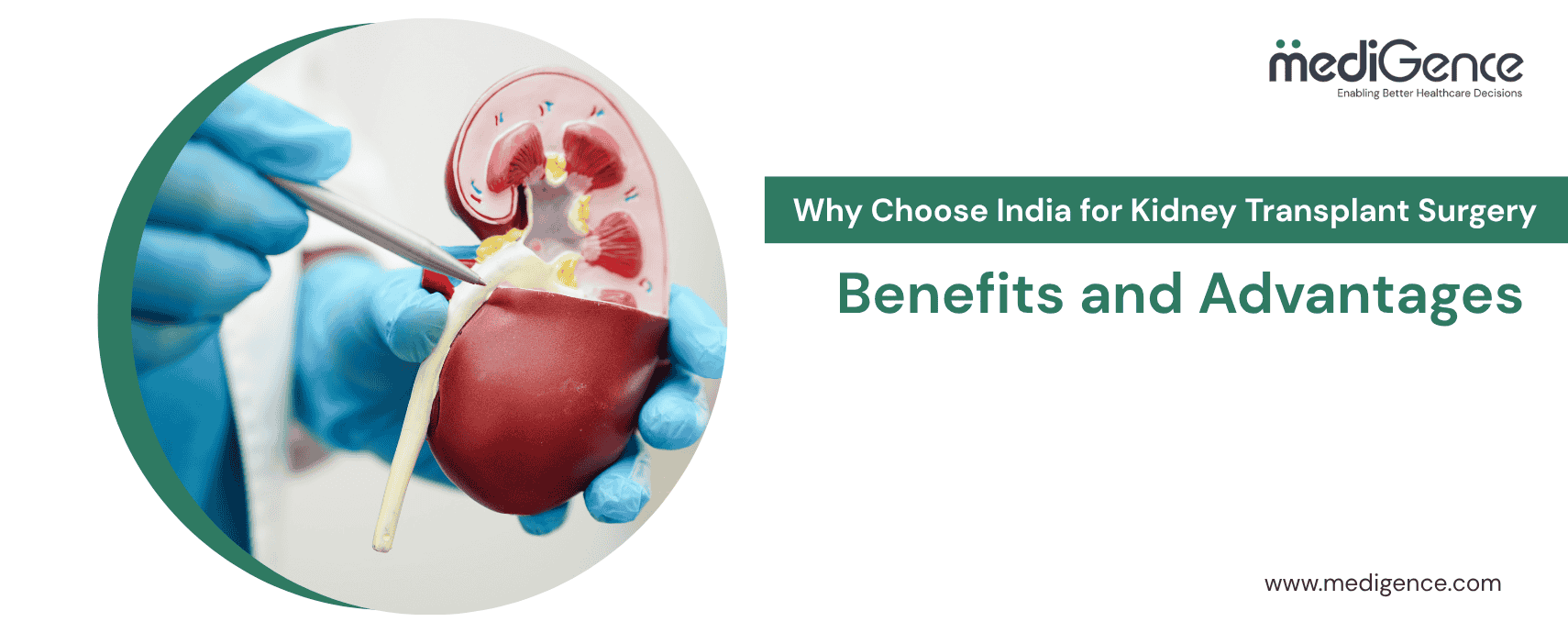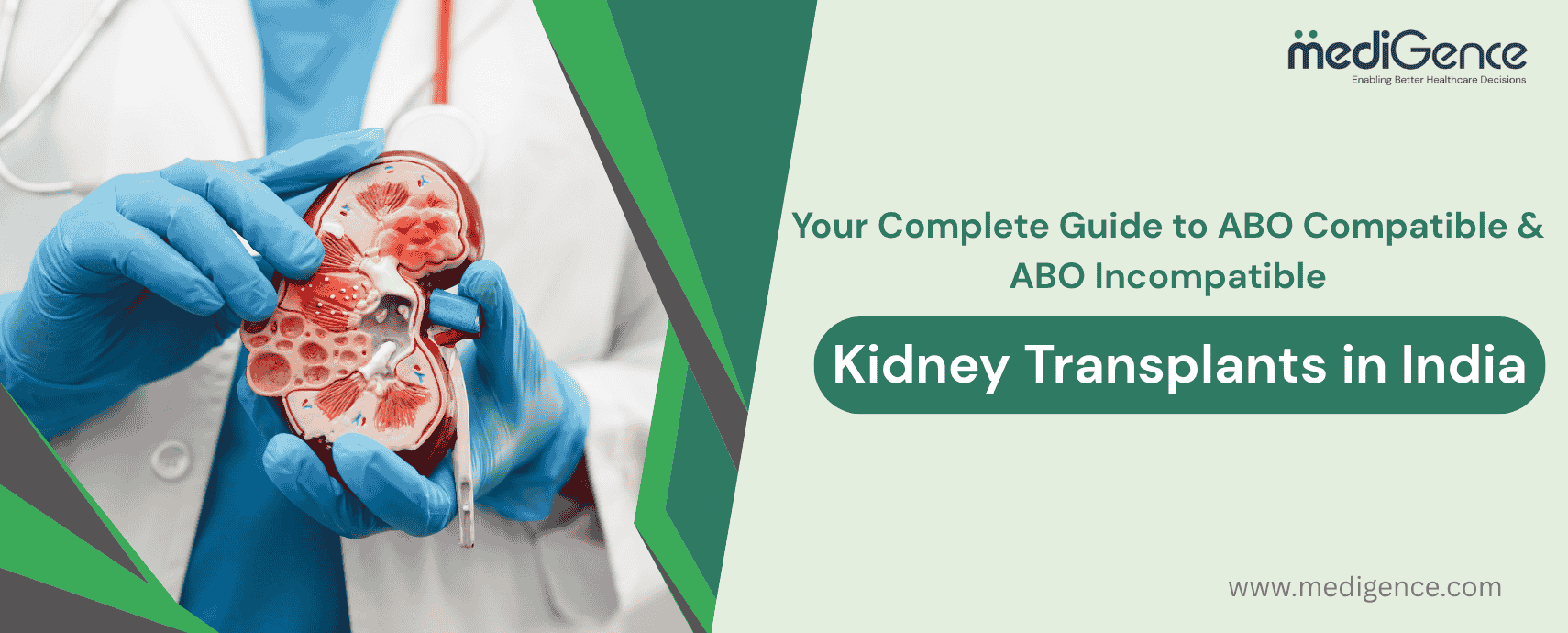What is Kidney Transplant Surgery?
Kidney transplant surgery is a life-saving surgery for patients who have been diagnosed with end-stage renal disease (ESRD) or chronic kidney failure. The procedure will involve a healthy kidney from a donor being transplanted into a patient whose kidneys no longer function adequately. There are two main types of kidney donors: living (usually a close relative or loved one) and deceased donors. After this surgery, patients can live a longer life with less restriction and enjoy an active lifestyle free of dialysis. A successful transplant may significantly enhance the quality of life, reduce the likelihood of losing one’s life, and restore kidney function.
The Growing Need for Kidney Transplants
The worldwide incidence of cases of kidney failure is rising due to the increase in diabetes, hypertension, and lifestyle disease cases. As the demand for kidney transplants increases, the challenges related to access, affordability, and availability of appropriate healthcare facilities in major hospitals also increase. Many patients from both developed and developing countries are considering India as a reliable destination for the procedure.
In recent years, India has been developing a robust ecosystem for medical tourism, particularly in complex procedures such as kidney transplants. India has partnered to enhance the medical travel experience by upgrading infrastructure, streamlining the medical visa process, and simplifying pre-departure coordination between hospitals and patients for international travel. Medical travel facilitators act as mediators to find suitable hospitals, treatment packages, accommodations, and facilitate transportation and logistics.

Book Online Consultation
The cost of Kidney Transplant Surgery in India compared to other countries includes:
| Country | Minimum Cost in USD | Maximum Cost in USD |
|---|---|---|
| India | 12,500 | 17,000 |
| Turkey | 17,500 | 23,000 |
| Thailand | 30,000 | 35,000 |
| Singapore | 180,000 | 200,00 |
Reasons to Choose India for Kidney Transplants
- Well-Equipped Medical Facilities: There are numerous multi-speciality hospitals and dedicated organ transplant centres all across India. These hospitals feature state-of-the-art technology, modern surgical rooms, and adhere to accredited international standards (JCI, NABH). Hospitals such as Apollo, Fortis, Max Healthcare, and Medanta have active nephrology and urology departments and have completed numerous successful transplants.
- Highly Qualified and Long-Standing Surgeons: Internationally trained nephrologists and transplant surgeons who specialise in delivering kidney transplants, much of which is conducted in the United States, the U.K., or Europe, reside in India. The surgeons, applying their vast experience, can tend to complex cases, thoroughly monitor post-operative care, and arrange immunosuppression therapy.
- Cost Effectiveness: While the affordability of kidney transplant surgery in India is a major attraction for international patients, it is also worth noting that the costs of the transplants themselves are even lower in India. In the United States, the U.K., or Australia, the treatment involved (the entire chain of events from pre-transplant evaluation, organ transplant surgery, hospital postoperative stay, hospital follow-up appointment, and any subsequent follow-up procedures) averages between.
- High Rates of Success: India has achieved high rates of success with kidney transplantations. The success rates for kidney transplants in India can be compared to worldwide averages, with the average success rates for living donor kidney transplants being between 90% 95% when originating either internationally or locally and kidney transplants for deceased donors have an average success rate of approximately 85% to 90%. These are impressive outcomes, highlighting the expertise of the surgical teams and the quality of postoperative care.
- Shorter Wait Times: In India, due to the higher number of living kidney donor transplants compared to deceased donor transplanted kidneys, wait times for international patients who bring a living donor are relatively shorter than in many countries, where waiting for a kidney from a deceased donor can be years long. It is the speed of the process that allows for the match between donor and recipient to be expedited, through a more straightforward approval process for both the donor (living) and recipient (patient), and then prepare for treatment sooner.
- International Patient Services: Indian hospitals have dedicated international patient departments that specifically assist international patients requiring various medical services in India, including assistance with visas, airport transfers, language interpreters, and overnight accommodations. This means less time for patients, and importantly, their supportive family members travelling from abroad, to worry about arrangements they may not be familiar with.
- Ethics, Legislation and Governance: India is governed by the Transplantation of Human Organs and Tissues Act (THOTA), which regulates the practice of organ donation and transplant procedures in India and legislates on ethics, donor, and patient safety in transplant practices through its regulations. All transplant procedures take place under strict legal protocols; however, hospitals must also obtain approvals from relevant authorities before performing the surgery.

Additional Benefits of Kidney Transplant in India
- Cultural Comforts and Hospitality: Many patients from South Asia, the Middle East, and Africa may find comfort in India due to shared cultural similarities, as they come from similar cultural backgrounds, cuisines, and languages.
- Pre- and Post-operative: India can provide comprehensive pre-surgical assessments, state-of-the-art diagnostic imaging, and structured follow-up plans for optimal recovery.
- Rehabilitation and Wellness Plans: Several hospitals in India offer wellness plans that include dietary consultations upon discharge, as well as physiotherapy to support continued wellness after the transplant.
Challenges and Considerations
Although India has numerous advantages for kidney transplant procedures, international patients should consider the following:
- Legal Implications: Documentation and approvals will require a certain amount of time, so be sure to budget for this accordingly in your trip planning.
- Donor Compatibility: Donors must undergo a thorough evaluation for compatibility before approval for transplantation.
- Follow-up Monitoring: Patients need to understand that they will be on medication for life and require ongoing, periodic monitoring. Therefore, a plan with a local physician may need to be arranged upon your return home.

Get in Touch
Conclusion
India has become a global centre for kidney transplant surgery, following further and consistent efforts based on its high surgical standards, excellent medical facilities, skilled surgeons, minimal waiting lists, and cost-effectiveness. India’s commitment to ethical transplanting and patient-centred care also makes it more appealing as a future destination for those seeking a new lease of life through a kidney transplant. For patients with end-stage kidney disease, selecting India as a destination for a kidney transplant marks not only a definitive medical decision, but also compassionate care and an opportunity for new health.










